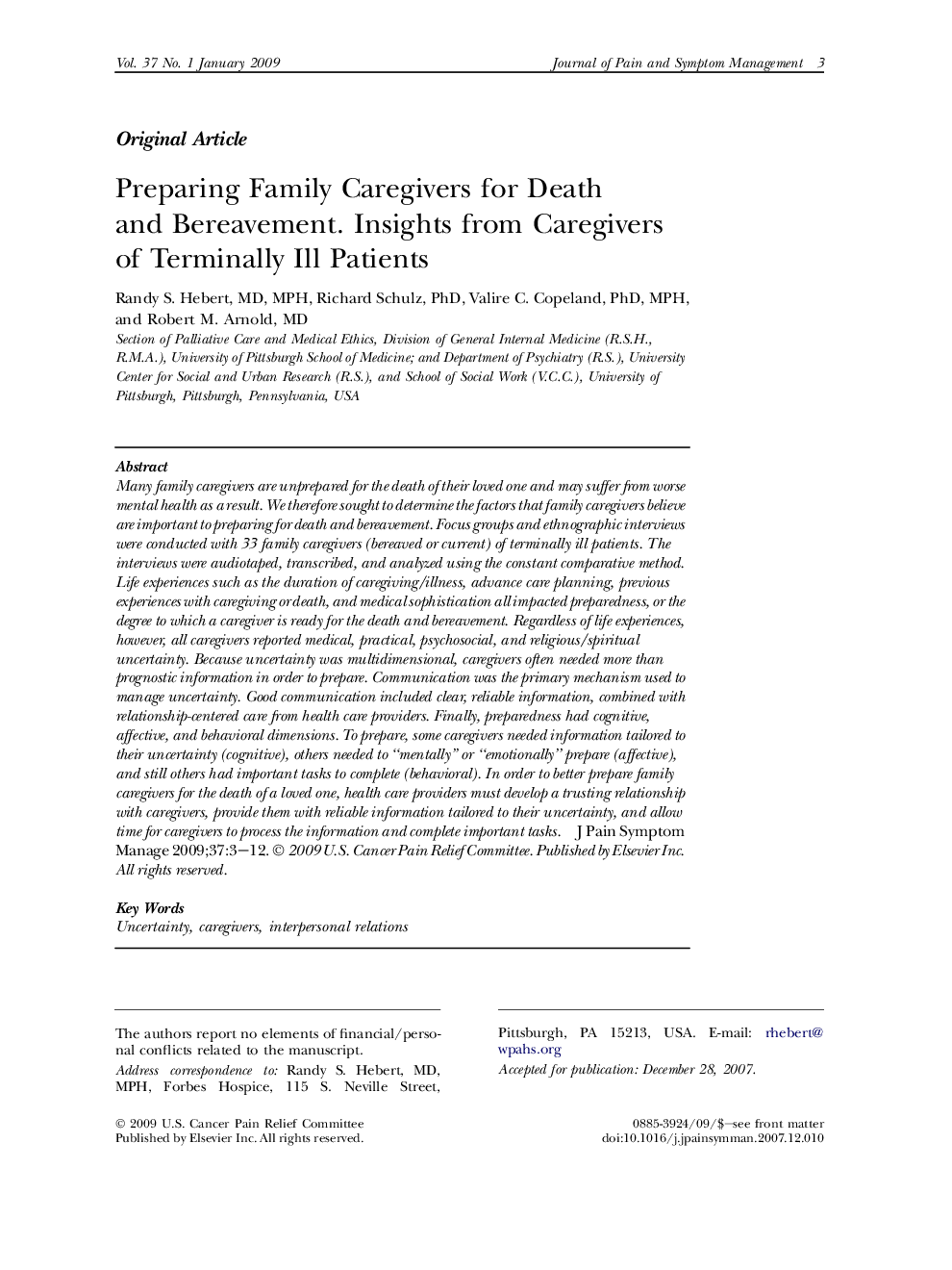| کد مقاله | کد نشریه | سال انتشار | مقاله انگلیسی | نسخه تمام متن |
|---|---|---|---|---|
| 2724674 | 1146171 | 2009 | 10 صفحه PDF | دانلود رایگان |

Many family caregivers are unprepared for the death of their loved one and may suffer from worse mental health as a result. We therefore sought to determine the factors that family caregivers believe are important to preparing for death and bereavement. Focus groups and ethnographic interviews were conducted with 33 family caregivers (bereaved or current) of terminally ill patients. The interviews were audiotaped, transcribed, and analyzed using the constant comparative method. Life experiences such as the duration of caregiving/illness, advance care planning, previous experiences with caregiving or death, and medical sophistication all impacted preparedness, or the degree to which a caregiver is ready for the death and bereavement. Regardless of life experiences, however, all caregivers reported medical, practical, psychosocial, and religious/spiritual uncertainty. Because uncertainty was multidimensional, caregivers often needed more than prognostic information in order to prepare. Communication was the primary mechanism used to manage uncertainty. Good communication included clear, reliable information, combined with relationship-centered care from health care providers. Finally, preparedness had cognitive, affective, and behavioral dimensions. To prepare, some caregivers needed information tailored to their uncertainty (cognitive), others needed to “mentally” or “emotionally” prepare (affective), and still others had important tasks to complete (behavioral). In order to better prepare family caregivers for the death of a loved one, health care providers must develop a trusting relationship with caregivers, provide them with reliable information tailored to their uncertainty, and allow time for caregivers to process the information and complete important tasks.
Journal: Journal of Pain and Symptom Management - Volume 37, Issue 1, January 2009, Pages 3–12